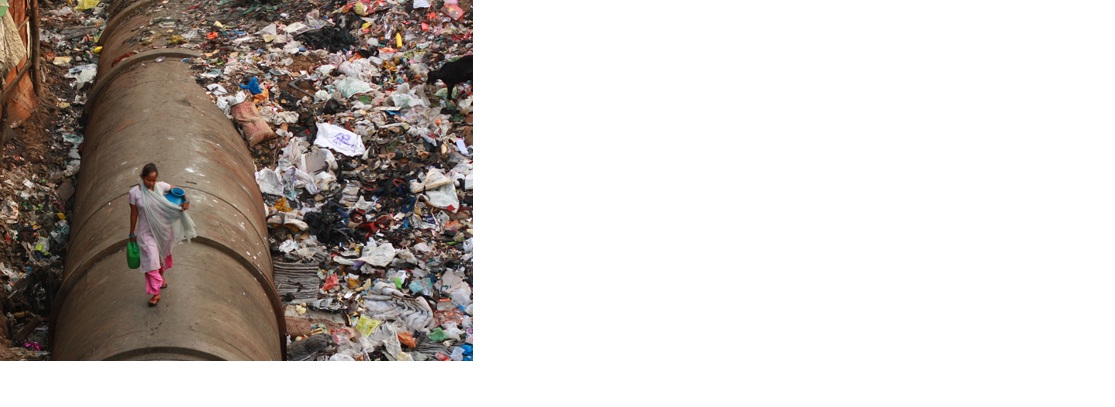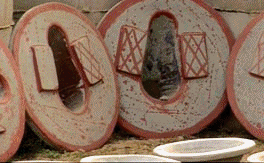Nurturing the rural sanitation revolution in India
The Total Sanitation Campaign was launched in 1999, advocating a shift from a high to a low subsidy regime, and greater community involvement.
The Total Sanitation Campaign was launched in 1999, advocating a shift from a high to a low subsidy regime, and greater community involvement.
This Report of the Committee deals with the action taken by the Government on the recommendations contained in the Second Report (Sixteenth Lok Sabha) on the subject ‘Evaluation of Rural Drinking Water
Total sanitation programme which was so far been executed by the Rural Development Department is permissible under the Mahatma Gandhi National Rural Employment Guarantee Scheme (MGNREGS). “If construction

On 15 August 2014, the Honourable Prime Minister of India, Shri Narendra Modi, announced the intention to launch a new mission, Swachh Bharat, on 2 October 2014, Mahatma Gandhi's birth anniversary. Intended
The Census of 2002 to identify the poor in rural areas of India was the third in a quinquennial series. However, it has been appropriately criticised. This paper elaborates on the criticisms, and proposes an alternative set of criteria and methodology for conducting the next (now overdue) census of the rural population to identify the poor.
Union Minister of Rural Development Dr.C.P.Joshi emphasized the need to address the issues of access and quality of sanitation facilities in rural areas across the country.
Collector Chandrakant Dalvi, who had decided to crack the whip on gram panchayats and members, who have not constructed toilet blocks, have asked the block development officer to issue show-cause notices to erring sarpanch's in the villages.
Pune Collector Chandrakant Dalvi has decided to crack the whip on gram panchayats that have not constructed toilet blocks and nearly 600 sarpanchs and panchayat members will be stripped off their posts for not adhering to rules. The move comes as part of the effort to make Pune an open defecation-free district by June next year.
In a bid to check the theft of canal water, the Punjab Cabinet today approved amendments to Section 70 of the Northern India Canal and Drainage Act, 1873, to make it far more stringent and punitive. A
<p>Poor sanitation is thought to be a major cause of enteric infections among young children. However, there are no previously published randomized trials to measure the health impacts of large-scale sanitation

This review of people's perspectives on sanitation from Bangladesh, India, Nepal, Pakistan and Sri Lanka consists of reflections on why interventions and projects in their settlements had succeeded or failed.
SHILLONG, Nov 20: State Commissioner and Secretary, Public Health Engineering (PHE) PW Ingty said today that 100 per cent sanitation would be provided in all the villages of Meghalaya by 2012.
Hyderabad, Nov. 18: Despite targets periodically set by the government, sanitary facilities in most states in the country have improved little over the centuries. In Andhra Pradesh, 60 per cent of households in villages and 25 per cent in urban areas still do not have a toilet.
The Master Plan largely focuses to Open Defecation Free (ODF) with universal access to toilet in both the urban and rural context through the total sanitation approach. It has recognized the improved toilet
The objective of this study was to evaluate and quantify the economic benefits attributable to improvements in water supply and sanitation in rural India.
India is young and young people don't like to be sermonised. Slogans would not help conserve water. But taking small steps, practising a few things daily, and auditing one's own behaviour will make one
This report examines private sector provision of on-site sanitation services in Bangladesh, Indonesia, Peru, and Tanzania, four countries where the local private sector already plays a major role in helping
THE Minister of Water Resources, Mrs. Sarah Ochepe, has appealed to the Chairmen of all Local Government Councils across the country to give more priority to provision of water and sanitation to the rural
Contingent plan for drought for the year 2014-15 (Odisha)
<p>The Department of Drinking Water and Sanitation, Ministry of Rural Development envisaged a comprehensive ‘Assessment Study of Impact and Sustainability of Nirmal Gram Puraskar’ in the country.